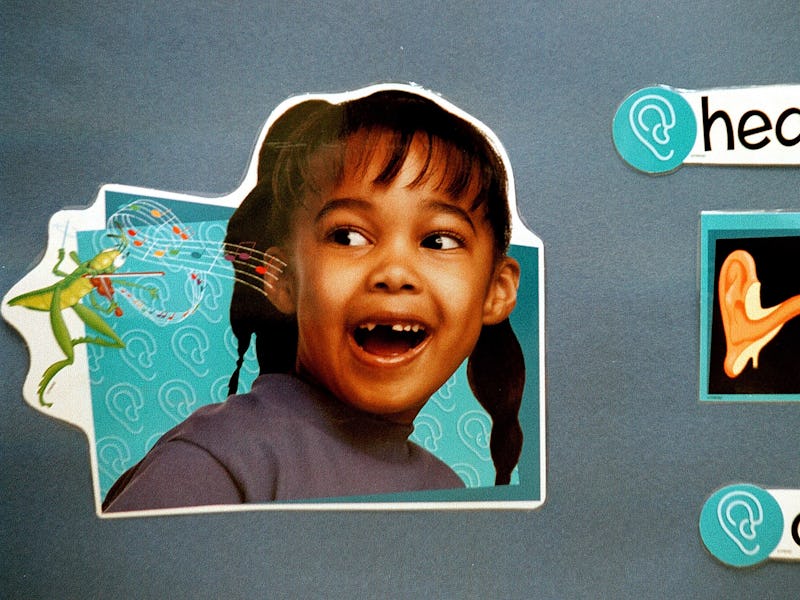Science Shows That Bilingual People's Brains Work Differently
Researcher Dr. Judith Kroll lets us know if it's too late to get a differently-networked bilingual brain.

Not everyone was fortunate enough to have been raised bilingual. There’s something supremely awesome about being able to articulate your feelings and complicated thoughts in more than one language. You have access to a much larger audience, and who doesn’t want that?
Judith F. Kroll, a Penn State cognitive scientist and professor of psychology, linguistics, and women’s studies, found that those who speak more than one language have different brain structures than monolinguals which results from the person switching between the two. Juggling between the two languages, she says, “changes the brain networks that enable skilled cognition, support fluent language performance and facilitate new learning.” Both languages are constantly active in the mind, and in competition with each other.
Of course not everyone is identical and these changes aren’t consistent with all bilingual folks — there are variants: like when the person learned the language and what context they use each language. She also notes that, “Sometimes we see these cross-language interactions in behavior, but sometimes we only see them in brain data.”
She’ll be presenting her findings today at the annual meeting of the American Association for the Advancement of Science. We asked the doctor a few questions regarding her findings. We wanted to know if it was too late to learn a new language and therefore reprogram our brains. She gave us the rundown.
What do you think are the rewards of being bilingual? In what other areas will this assist the person who is bilingual?
In the current discussion about the consequences of bilingualism for cognition and the brain, it is easy to forget that, of course, a bilingual person has two languages that make it possible to communicate with a larger number of people and to potentially negotiate life in different cultures more easily than a monolingual person. That seems like a reward in itself.
The research on bilingualism often shows that there are also positive consequences for cognition, generally in the domain of multitasking and attentional control, but even research that does not produce benefits for bilingualism rarely reveals negative consequences.
Bilinguals are also better language learners, making it easier to learn other languages beyond the first two.
Do you have to be raised bilingual from birth to see these cognitive differences?
It is certainly easier for young children to acquire a second language than older children or adults. But you do not have to be bilingual from birth (what we would call an early bilingual) to see positive consequences of bilingualism for cognition.
Some even argue that late bilinguals (i.e. those who acquired the second language after early childhood) may show some unique benefits because the difficulty of learning the second language late may make demands on cognitive resources that, if the learner is successful, produce later benefits.
The work of Robert and Elizabeth Bjork at UCLA on “desirable difficulties” in learning and memory might suggest that late bilingualism might confer some special benefits.
The main message in the recent studies is that it is never too late. The earlier a person begins, the more time he or she has to become proficient. But in the end, it is proficiency that may matter more than age of learning.
Are you bilingual? If so, how do you personally feel that has affected your way of thinking?
I am not bilingual. I have a pretty typical American education, having studied Spanish as a student but not living in a Spanish-speaking environment. And then having the opportunity as an academic to spend two different sabbaticals in the Netherlands, where just about everyone speaks English in addition to Dutch, making it difficult to learn more than a minimal level of Dutch.
Most of my students are bilingual because this is a topic that, for many bilinguals, brings the science together with their life experience. Many of us who study this topic are now quite involved in outreach activities to bring the science to the public. And I think the experience of working with others outside of the laboratory does affect our thinking.